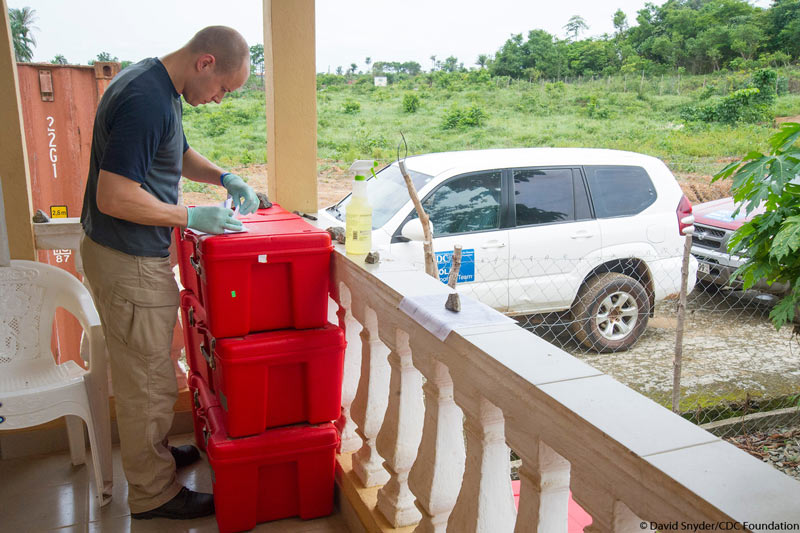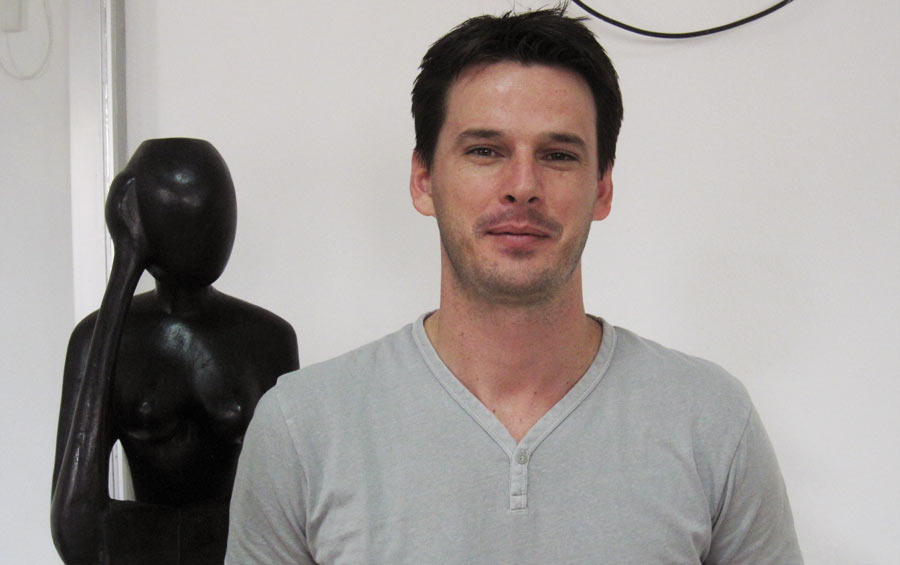Speeding Up Ebola Diagnosis in Sierra Leone: Transporting Laboratory Samples

CDC staff at Bo Lab in Sierra Leone prepare newly delivered samples for testing.
One of the biggest early challenges to the West Africa Ebola response was to rapidly deliver critical laboratory samples from medical facilities to labs for testing. Public health experts knew time was against them—the longer it took to diagnose the virus, the longer people’s lives were at risk. During the peak of the outbreak, with an increasing number of Ebola Treatment Units and laboratories, hundreds of samples needed to be transported every day.
The need for rapid testing made overcoming the challenges facing countries like Sierra Leone even more important. Many people live in rural areas lacking basic infrastructure and even paved roads, and compounding the effort, Ebola requires special resources. At that time, there was no national laboratory sample transport system that could safely handle many Ebola samples.
That’s why, in December 2014 when CDC’s Sierra Leone Ebola Response Lead, Dr. Oliver Morgan, requested help, the CDC Foundation funded an in-country partner, eHealth Africa, to work to improve the sputtering lab transport services in Sierra Leone’s Western Area.
eHealth Africa quickly realized that there needed to be a more coordinated process. Susanne Kirkegaard, eHealth’s Country Team Lead, appointed district coordinators for each of Sierra Leone’s six districts. Each of the new coordinators had a health background and, more importantly, each coordinator was intimately familiar with his or her assigned districts providing an invaluable connection to each district critical for directing pick-up and delivery of samples.

Adam Thompson, Co-Founder Ehealth Africa, collaborated with CDC-Foundation and CDC in Sierra Leone to speed delivery of laboratory samples for Ebola testing.
The organizational improvements were quickly followed by new hardware. CDC Foundation donated three trucks and five motorbikes. Meanwhile, the Western District coordinator began setting up a process for regular pickup and delivery of lab samples. They employed district coordinators to oversee the effort. As Kirkegaard noted, the process worked because “the [district coordinator] set up a whole mapping of where all the different Ebola treatment units and labs were; which ETU should go to which lab and then, developed a system of regular pickup schedules, who would be on call to do emergency pickups, and where the different vehicles and motorbikes should be located to respond fastest to the call.”
From December 2014 to April 2015 the lab transport project began to grow and catch on across Sierra Leone. As processes solidified, more and more samples were transported to labs faster, leading to more rapid diagnoses. By the time cases were declining significantly in April, eHealth Africa had trained local staff to coordinate the laboratory transport. With CDC Foundation funding the rapid sample transport during the crisis, eHealth Africa built capacity for laboratory fleet management to enhance testing and save lives in the future.